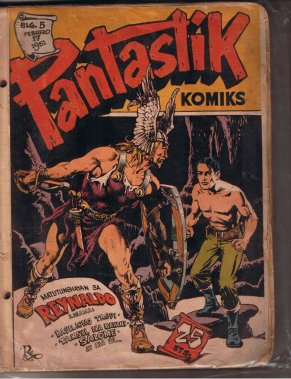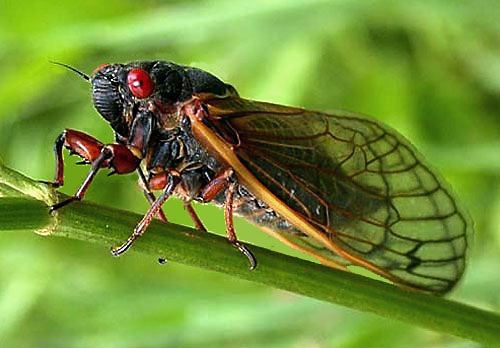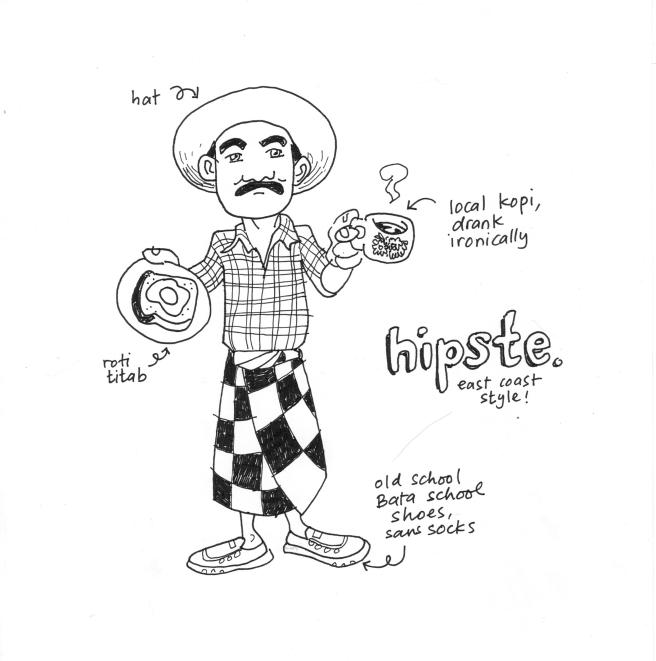
To the east of the Ayta Mountains lay the Village-Kingdom of Sambali and its capital of Olo Nin Apo (which meant “God’s Head” in their dark ancient tongue). The Sambali were slavers and preyed upon the Ayta or anyone else that wandered too close to their borders, particularly during the summer slaving season.
Bands of Sambali raiders were much feared among the small island kingdoms. They kidnapped anyone they thought would provide a good price at the slave markets, or rounded up those that had fallen into debt. They were said to provide the choicest of slaves, stocking all kinds of captives: men, women, children, and even the occasional Kamana to provide whatever their clients needed or desired.
Once a year, they would load a large boat, and make a dangerous sea crossing to the Land of Qin, where they hid under the name 三佛齊 or San-fo-ts’i. From there, their human wares were traded on the silk and spice road northwards through the strongholds of the Xiongnu and the Yuezhi, towards the remote Siberians realms of Hyperborea, and eastward past the Scythian steppes of Bactria. Their best slaves were sold for premium prices through the frankincense caravanserai of Iram in Parthia, as offerings for the golden temples of Chola and Suvarnabhumi, and even farther across the sands to the Great Empire of Maurya, where virgin slaves gathered white tea leaves at the foothills of the Himalayas.
In the heart of Olo Nin Apo was the slave market, a huge emporium where people and all manner of goods were bought and sold. This market surrounded the Great Hall of the Sambali Lords, like a living, ceaselessly moving moat.
Apart from slaves, the Sambali also traded in precious stones, which was the village-kingdom’s main currency. It was said that the Sambali market contained more mineral wonders than any kingdom that bordered Mother Ocean: red and green garnets the size of pigeon-eggs, rare bezoars, pearls as big as fists, and jade in all the colours of the rainbow. Most precious of all were the exotic black diamonds, which were said to be found only in the ruins of the ancient city of Tundon. The Sambali elders said that these were not native to the islands, save for a precious few that fell from the sky as bulalakaw or shooting stars. Every single one of them were all said to have once belonged to the dreaded Lord of Tundon. These dark gems were considered so rare and valuable that only the leader of the Sambali was allowed to own or trade them.
One fine evening, under the orange glow of mangrove-wood torches, an unnaturally tall young man inspected a hawker’s gleaming wares. The warrior’s bearing was straight and imposing, with the sturdy authority of a mabolo tree that lorded over the forest canopy. His skin was as dark and brown as Pasig river mud but his hair was as pale and silver as moonlight.
Underneath a short tunic, trimmed with wild cat fur, he wore the heavy leather armor worn by the Xiongnu nomads who lived in the shadow of the pole star. On his feet were something that few in islands were accustomed to see, a pair of royal scythics, Scythian boots of leather and metal.
“I am looking for your biggest black diamond,” the stranger declared, fingering a purse filled to capacity with gold.
“Only the Most Powerful and Almighty Lord of Sambali can trade diamonds,” the shopkeeper of shiny baubles and gewgaws said, with a wide smile that revealed that every single one of his betel-stained teeth was decorated with gold. “If you somehow get an audience my friend, you will need more than gold to entice him.”
The young man said nothing and walked away. He was joined by two burly figures flourishing an arsenal of strange weapons. Together the fearsome trio walked towards the Great Hall, stopping only to watch the human chattel on parade at the town’s central square.
The new slaves shuffled in with a cadence of dead sighs. They were led into the main bazaar with nothing but a scrap of bamboo hanging around their neck, scrawled with symbols indicating their age, origin, and abilities. The best were placed on individual revolving stages, where eager buyers could inspect them in the round. An auctioneer called out the attributes of each slave before haggling with buyers, who whispered each emulous offer in the traditional Sambali manner called bulungan.
The young man observed a family of indentured Namayan people, wailing as different buyers separated them forever. A dark Ayta woman with beautifully formed ebony breasts caught his attention. He watched as a buyer from the Middle Kingdom ran his wizened hands across her skin, as if it were a fine bolt of silk. Behind him, wearing only a leather collar was a young Yuezhi man with melancholy blue eyes and a sharp hairless chin. He had been given away as stock ransom to pay a family’s generations-old debt.
A series of small hanging cages also intrigued him. Inside were tiny humans, the size of crab-eating macaques.
“您好,” greeted a slave trader who wore an expensive tunic of silk and banana leaves. “What language do you speak stranger?”
“好, 谢谢你,” the young man responded. “I also speak Sambali.”
“Ah, you may not be such a barbarian after all. The creatures you looking at are called ‘Ebu Gogo’,” He said, pointing to the cage. “They may look like Kamana, but I assure you they are actually a type of relic human. There are not many left now.”
“Where are they from?” the outlander asked.
“We captured them on a small island many moons south of here called the Island of Flowers,” said the slaver, caressing a long grey mustache flecked with specks of gold. “It lies west of Apo Krakatau, the same island in where the heroes of old hunted dwarf stegodons. Ebu Gogo slaves are exceedingly rare and they almost never survive the sea journey.”
“Fascinating,” the young man said, poking the diminutive savage with a stick, “they look very fierce.”
“They are extremely strong and feral for their size. We usually lose a few of our slaves to their traps when we hunt them. Can I interest you in acquiring one? Every young lord should have a conversation piece in his camp, assuming of course that you can afford them.”
“Thank you but I am not interested.” The young man remarked.
“Hmm…your Xiongnu armour usually means money. Perhaps the young warrior will be interested in one of my fine ladies?” the slaver said, clapping three times. His assistants brought out five magnificent young women for the young man’s inspection.
“Look at them my Lord, all soft and rounded, large-lipped, perfect and ample. This one here is from the odious Salt Kingdom, which lies north of the Ayta Mountains. The women there are deluded, thinking that they are superior to us men. We had to beat this one for many moons until she learned to submit like a proper wench. She still has a bit of a bite but I will stake my reputation on how excellent she is with her hands.” He tittered, pointing to a comely woman with olive-brown skin and dead, glassy eyes.
“I am not looking for a woman.”
“I see.” The slaver said, clapping four times. His assistants scrambled inside the jute tent and brought out four young men with delicate features and enormous reproductive organs. “You do look like you have exotic tastes.”
“No, I did not mean it that way.” The strange warrior said impassively. “I am not looking for slaves. I am only interested in diamonds.”
“You just wasted my time!” The slaver said, flipping open his palm-frond fan and walking towards another potential customer; “…so rude these barbarians.” he muttered. “你妈卖批”
The young man felt a wave of anger welling in his breast. “You have insulted my mother, slaver.” He said, pulling out his jian, a huge double-edged sword made from blood-forged iron. The blade was as long as a man’s arm and its width the breadth of a child’s palm. Its surface was covered in both sides with dark snake-like patterns, and decorated with white jade and black obsidian. The grip of the sword was bound by black silk terminating in a pommel of eleven concentric iron circles.
The slaver was unperturbed by the weapon and summoned his guards with a series of claps. “Kill him,” He ordered, “and someone bring me a cup of areca toddy.”
Six Sambali mercenaries rushed out from the tent, bearing bronze swords and spears. The out lander was joined by his two large companions, and a crowd formed to watch the fight. Unlike most societies, where people valued personal safety and moved away from the direction of danger, the Sambali were addicted to the low-brow theater of visceral thrills. The crowd jostled with one another to watch the fight from the best vantage points. It didn’t take long for a sizable audience to be assembled, complete with howling bookies calling the odds and soliciting bets.
The tallest and most muscular warrior thrust his panabas towards the young man’s chest. The panabas was a long, single-edged bronze sword, one of a Sambali’s four favored weapons which included the spear sibat, the leaf-shaped broad knife barong, and the wooden staves, baston. The panabas was known as the best blade for separating heads from necks. With a quick turn of the wrist and a hard swing it sliced easily through bone and flesh.
The stranger parried with a blow so powerful that it broke the bronze sword into two. Moving swiftly, he kicked his opponent in the sternum. He moved behind the slaver, knocking the man unconscious with the pommel of his sword. Another strong kick sent the dazed slaver hurtling towards a barbecue stand selling dried squid and roasted mud-skippers.
He jumped towards another warrior, smashing a bronze spear and immobilizing the slaver’s arms with a series of rapid straight punches to the biceps. His companion hurled the incapacitated soldier towards another group of stalls, sending chicken feet, duck eggs, cubes of boiled blood, and marinated pig intestines flying through the air. The small team quickly dispatched the rest of their adversaries and the slave trader found himself facing the three strangers alone.
“By my sword Lagim apologize, and I may let you live,” The leader of the out-landers ordered.
“I hardly think so,” the slaver snorted. The fight had drawn the attention of the Sambali authorities, and the young man and his companions were quickly surrounded by a contingent of twenty fierce Sambali warriors.
[Stay tuned for the next thrilling chapter. Hanggang sa susunod na kabanata…]







